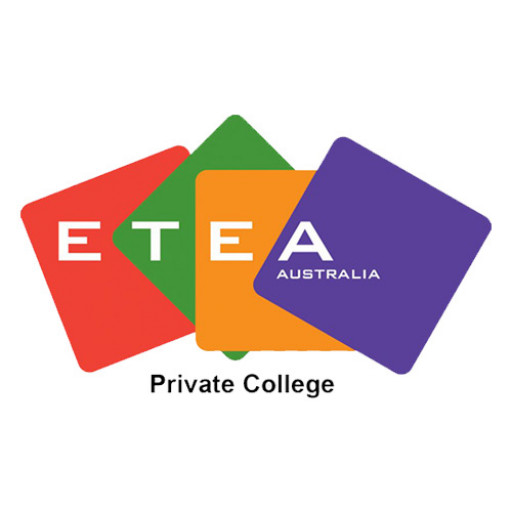The Bachelor of Nursing program at Swinburne University of Technology is designed to prepare students for a rewarding career in healthcare by equipping them with comprehensive theoretical knowledge and practical skills in nursing practice. This program emphasizes a combination of rigorous academic learning and real-world clinical experience, enabling graduates to deliver safe, effective, and compassionate patient care across diverse healthcare settings. Students will explore a wide range of topics including human biology, psychology, ethics, and health promotion, alongside more specialized subjects such as mental health nursing, community nursing, and acute care. The curriculum is structured to foster critical thinking, problem-solving abilities, and effective communication skills, all essential qualities for successful nursing professionals. Throughout the course, students participate in supervised placements in hospitals, clinics, and community health environments, providing them with invaluable hands-on experience and a deeper understanding of patient-centered care. Swinburne's focus on innovative teaching methods, inclusive learning environment, and industry partnerships ensures that graduates are well-prepared to meet the evolving needs of the healthcare sector. Upon completion of the program, graduates are eligible to register as registered nurses with the Australian Health Practitioner Regulation Agency (AHPRA), opening doors to various employment opportunities in hospitals, community health organizations, aged care facilities, and other healthcare providers. The Bachelor of Nursing at Swinburne University is committed to producing capable, ethical, and adaptable nursing professionals who can lead improvements in community health and contribute meaningfully to the wellbeing of individuals and populations.
The Bachelor of Nursing at Swinburne University of Technology is a comprehensive and innovative program designed to prepare students for a dynamic career in healthcare. This degree combines theoretical knowledge with practical skills, equipping graduates to deliver exceptional patient care across a range of settings, including hospitals, community health services, and aged care facilities. The curriculum covers core nursing principles, human biology, health assessment, and evidence-based practice, ensuring students develop a robust foundation in health sciences. Emphasis is placed on ethical considerations, cultural competence, and the importance of holistic and patient-centered care, reflecting the diverse needs of today's society. Throughout the program, students engage in simulated clinical experiences, enabling them to hone their clinical skills in a controlled environment before transitioning to real-world placements. Swinburne’s partnerships with leading healthcare providers offer students numerous opportunities for immersive clinical practice, fostering confidence and professionalism. The program also integrates contemporary topics such as digital health, health promotion, and policy, preparing graduates to adapt to the evolving healthcare landscape. As part of their education, students learn to work effectively within multidisciplinary teams, communicate with compassion and clarity, and advocate for patient rights and well-being. The Bachelor of Nursing at Swinburne emphasizes lifelong learning, innovation, and leadership, encouraging students to take initiative and contribute positively to health systems. Upon graduation, students are eligible to register with the Australian Health Practitioner Regulation Agency (AHPRA), enabling them to practice as registered nurses nationally. With a focus on practical experience, academic excellence, and ethical practice, Swinburne's Nursing program prepares graduates to meet the challenges of modern healthcare and make a meaningful difference in people's lives.
Program requirements for the Bachelor of Nursing at Swinburne University of Technology include a combination of academic qualifications, English language proficiency, and specific prerequisites. Applicants must have completed their secondary education with a satisfactory ATAR score or equivalent, demonstrating proficiency in science and health-related subjects such as biology and chemistry, which are essential for understanding the core principles of nursing. Additionally, the program typically requires applicants to present evidence of English language proficiency through standardized tests like IELTS, TOEFL, or equivalent, with minimum score thresholds set to ensure students can communicate effectively in a clinical environment.
Further requirements often include undergoing a police check and immunization verification, reflecting the safety protocols necessary when working with vulnerable populations in healthcare settings. Applicants may also need to participate in an interview or submit a personal statement outlining their motivation and suitability for a career in nursing, emphasizing qualities such as empathy, communication skills, and resilience. The program is designed to meet accreditation standards set by relevant nursing councils, so applicants should ensure they meet all entry criteria to qualify for admission.
Once enrolled, students are expected to complete a combination of theoretical coursework and practical placements, which involve supervised clinical practice in hospitals and community health settings. The curriculum includes modules on anatomy, physiology, pharmacology, health assessment, ethics, and professional practice, among others, preparing graduates for registration as registered nurses. Moreover, students must adhere to Swinburne University's academic policies, including maintaining a certain standard of academic performance and completing all required assessments successfully.
In summary, the program's entry requirements aim to select candidates with a solid academic background, relevant personal qualities, and preparedness for the demanding yet rewarding field of nursing. Prospective students are advised to consult the official Swinburne University website or contact the admissions office for the most current and specific entry criteria, as requirements may be subject to change based on accreditation and regulatory updates.
The Bachelor of Nursing program at Swinburne University of Technology offers multiple financing options to assist students in managing the costs associated with their studies. Domestic students may be eligible for government assistance schemes such as the Commonwealth Supported Place (CSP), which significantly reduces the tuition fees, and the Higher Education Loan Program (HELP), allowing eligible students to defer their tuition fees through a government-supported loan scheme. International students are responsible for paying full tuition fees, which vary depending on the course specifics and are outlined by the university.
Swinburne provides additional financial support through scholarships and bursaries, which are awarded based on academic achievement, financial need, or specific criteria related to the program or student background. These scholarships can cover partial or full tuition fees, thereby reducing the financial burden. For students seeking extra funding, various external funding options are also available, including private scholarships, loans, and sponsorships from organizations aligned with their career goals.
Furthermore, the university offers flexible payment plans that enable students to pay their tuition fees in installments over the semester or academic year, easing cash flow constraints. Students are encouraged to explore government grants, such as interstate or overseas student loans, if applicable, depending on their residency and citizenship status. International students can access specific scholarships targeted at international applicants, which may include tuition discounts or living cost assistance packages.
Swinburne also provides financial advice and planning services to help students understand their options and create manageable payment strategies throughout their studies. The university’s commitment to financial accessibility reflects its goal to support a diverse student body and ensure that qualified students can access high-quality nursing education without undue financial hardship. Students are advised to regularly check the university’s official website or contact the student services department for the most current and detailed information regarding tuition fees, scholarships, and financial aid programs related to the Nursing program.
The Bachelor of Nursing at Swinburne University of Technology is designed to prepare students for a dynamic and rewarding career in healthcare. This program provides comprehensive theoretical knowledge combined with practical clinical skills, ensuring graduates are well-equipped to deliver high-quality patient care across diverse healthcare settings. The curriculum covers essential nursing disciplines such as anatomy, physiology, pharmacology, mental health, community nursing, and leadership, providing a solid foundation for contemporary nursing practice. Students benefit from state-of-the-art simulation laboratories and industry placements, allowing them to gain real-world experience and develop critical skills in a controlled environment before engaging with patients in clinical settings. The program emphasizes evidence-based practice, cultural safety, and ethical considerations, aligning with industry standards and national healthcare policies. Swinburne’s strong industry partnerships facilitate placement opportunities in hospitals, community health services, aged care facilities, and private practices, giving students exposure to multi-disciplinary teams and diverse patient populations. Additionally, the program incorporates contemporary learning approaches such as problem-based learning, teamwork, and digital health competencies, preparing graduates for the evolving demands of the healthcare sector. Graduates of the Bachelor of Nursing are eligible to register with the Australian Health Practitioner Regulation Agency (AHPRA) and pursue employment across Australia and internationally. The university also offers pathways for further specialization, including postgraduate programs in areas like mental health nursing, aged care, and acute care. Swinburne’s commitment to innovative teaching, research, and community engagement ensures that nursing graduates are not only competent clinicians but also lifelong learners equipped to adapt to future healthcare challenges. The program’s flexible delivery options, including full-time and part-time study, support students balancing education with personal and professional commitments. Overall, Swinburne’s Bachelor of Nursing aims to develop compassionate, competent, and confident nurses ready to make a positive difference in people's lives through professional and ethical nursing practice.







